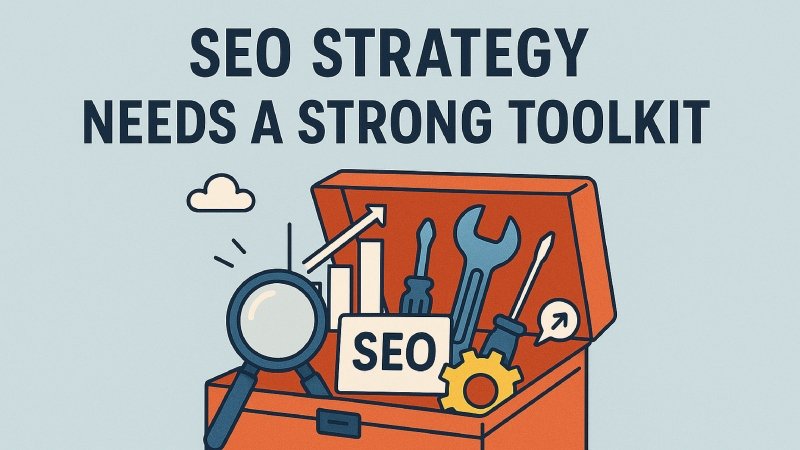To say that search engine optimization (SEO) is a critical aspect of digital marketing would be an understatement. As the digital landscape continues to expand and evolve, businesses and marketers must stay ahead of the curve to ensure online visibility and success. A robust SEO toolkit can be the linchpin in a multifaceted strategy, offering indispensable insights, streamlining processes, and ensuring that digital content effectively reaches its intended audience. Developing a familiarity with the tools that can propel an SEO strategy from average to exceptional is fundamental. Keep reading to discover how the right blend of tools can enhance your SEO efforts and drive your digital marketing success.
Understanding the Role of a Comprehensive SEO Toolkit in Digital Marketing Success
A comprehensive SEO toolkit, like those reviewed in Search Atlas reviews, is essential in today’s competitive digital marketing landscape. The right tools uncover keyword opportunities, track rankings, monitor backlinks, and simplify complex SEO data. This broad perspective helps marketers refine their strategies effectively.
An all-in-one toolkit streamlines SEO by integrating multiple functions into a single dashboard, reducing the need to juggle platforms. With a centralized hub, optimization becomes more efficient and strategic. Everything in one place ensures that every step aligns with overall SEO goals.
Beyond analytics, SEO toolkits provide data-driven content creation and web design recommendations. By leveraging these insights, businesses can enhance their digital presence and maximize engagement. This guidance transforms SEO from a trial-and-error process into a well-informed strategy.
Another crucial benefit is staying ahead of ever-changing search engine algorithms. With frequent updates to best practices, the right tools help users adapt and maintain effective SEO tactics. Staying informed ensures long-term success in an evolving digital landscape.
Essential Components of an Effective SEO Toolkit
An effective SEO toolkit comprises various components, each pivotal in achieving and maintaining high search engine rankings. Keyword research tools form the foundation, allowing marketers to identify the terms and phrases consumers seek. This is crucial for crafting content that resonates with the target audience.
Another core component is competitive analysis software. Understanding competitors’ SEO strategies can provide valuable insights and help identify areas for improvement. Businesses can adapt and refine their methods by learning what works for others in the same space.
On-page optimization tools, too, are indispensable. They assist in optimizing individual elements on a webpage, including title tags, meta descriptions, and content structure, to improve visibility and relevance. This granular focus on page components can significantly influence how well a page ranks within search engine results.
Additionally, link-building tools support the growth of a website’s backlink profile, a key factor in SEO. They help identify potential link opportunities and track the quality and quantity of inbound links. Link authority can bolster a site’s credibility and, as a result, its position in search listings.
Recommendations for Building and Enhancing Your SEO Toolkit
Building and enhancing an SEO toolkit should be a thoughtful process, informed by the specific needs of your business or clients. Start by assessing the current state of your SEO efforts and identifying gaps that could be filled by specialized tools. Market research and peer reviews, such as Search Atlas Reviews, can also be valuable resources in evaluating the efficacy of different tools.
It is important to choose tools that serve present needs and scale with your business. Opt for tools with features that accommodate growing data sets and more complex tasks. Ensuring that your selected tools can evolve alongside your SEO efforts is key to long-term success.
Always consider the usability of the tools you integrate into your toolkit. An overly complex system may result in inefficiencies rather than streamlining workflow. User-friendly interfaces, comprehensive support, and extensive educational resources can enhance the adoption and utility of the tools chosen.
Finally, while it is tempting to equip oneself with many tools, focusing on a few that truly deliver value is often more effective. The goal should be to assemble a toolkit that offers depth in functionality and aligns well with your SEO strategies. An intentional selection process will result in a more coherent and powerful set of resources.
Overall, a well-equipped SEO toolkit is essential for maximizing digital marketing success. It provides valuable insights, streamlines workflows, and adapts to evolving search engine algorithms. By selecting the right tools that align with your strategy, you can enhance visibility, drive engagement, and achieve long-term growth in the competitive online landscape.
Did you like this guide? Great! Could you browse our website for more?
